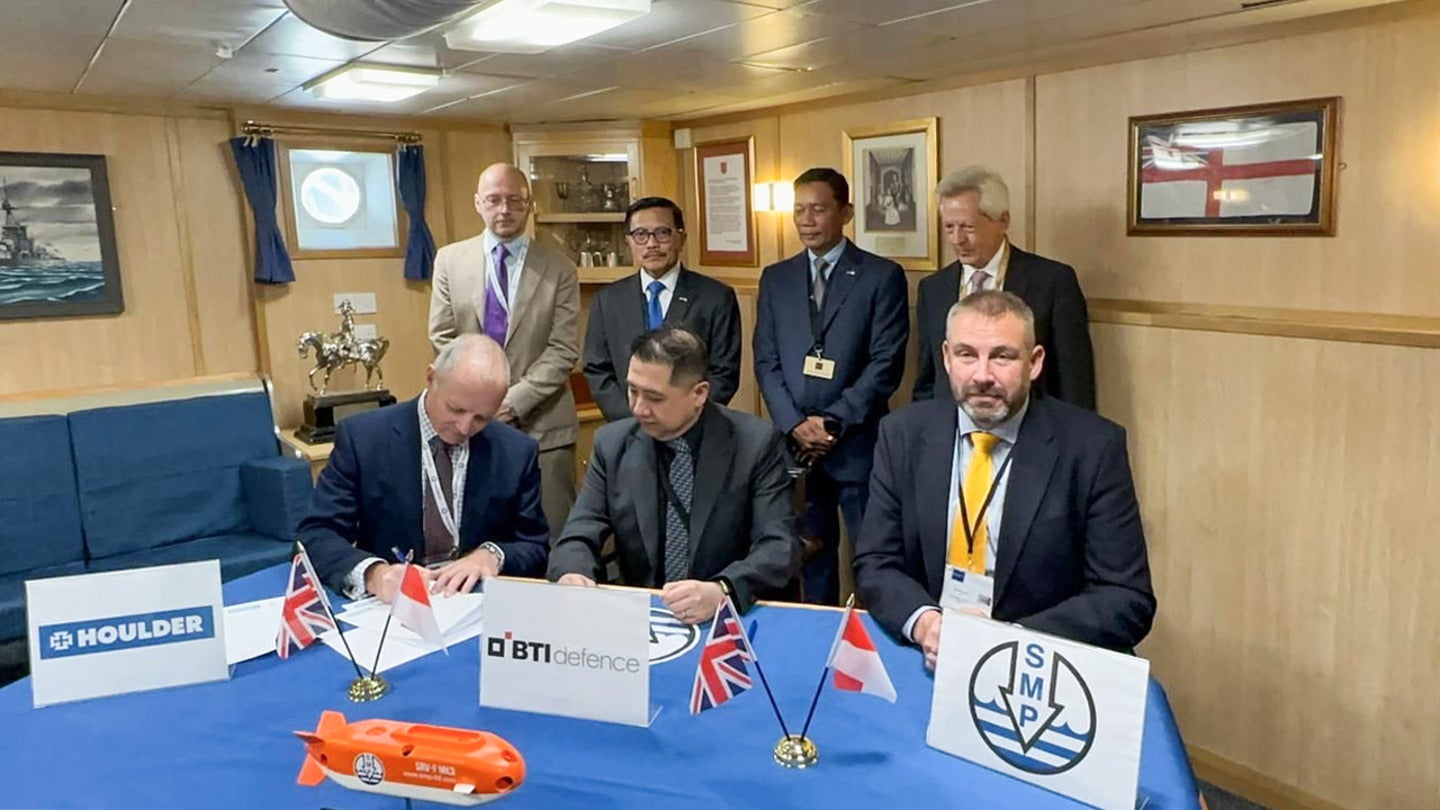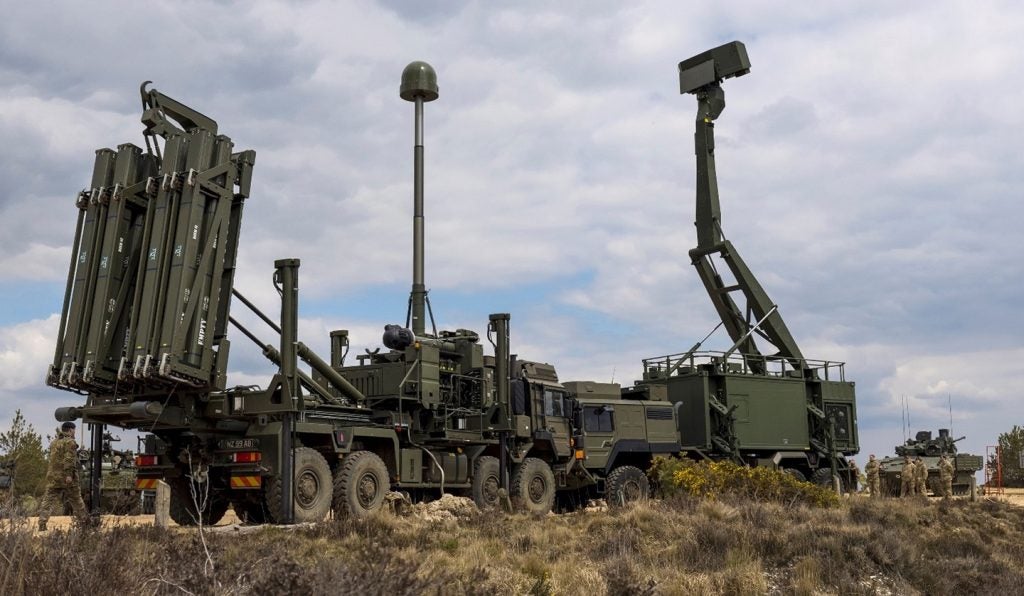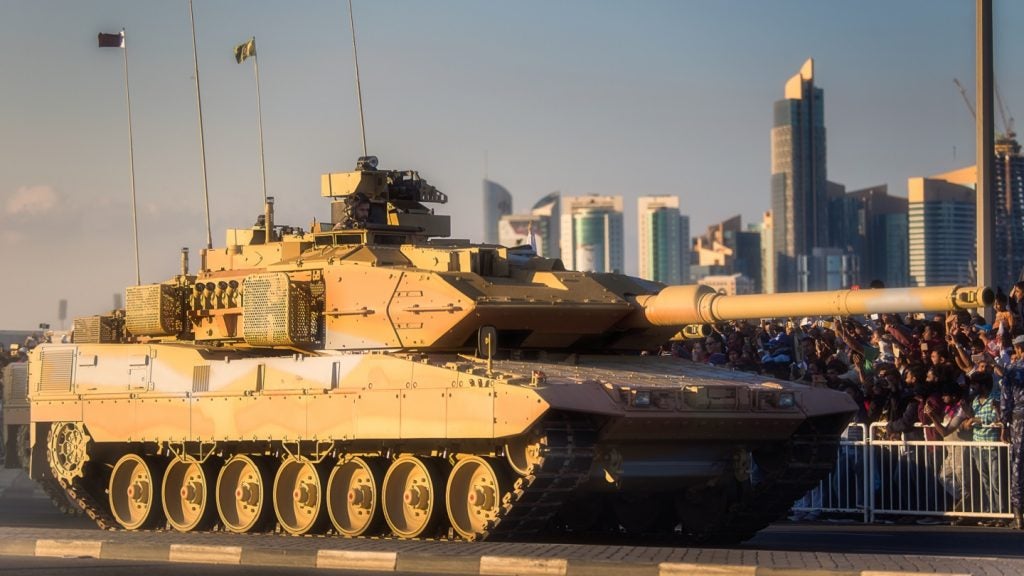
Indonesia’s Ministry of Defence has signed a $100m deal with UK company Submarine Manufacturing and Products (SMP) to purchase a submarine rescue vessel for the Indonesian Navy.
The agreement was publicly announced on Tuesday (12 September) during the Defence and Security Equipment International (DSEI) expo in London.
Indonesia has faced domestic criticism for outdated and inadequate military equipment. When one of the country’s five submarines sank during a torpedo drill in the Bali Sea in 2021, the lack of a rescue vessel resulted in the deaths of 53 crew members.
Indonesia aims to modernise military
The acquisition of a British-built Submarine Rescue System (SRS) with the capacity to dive to depths of 500m and carry up to 50 rescuees at a time marks a push to modernise the Indonesian military.
How well do you really know your competitors?
Access the most comprehensive Company Profiles on the market, powered by GlobalData. Save hours of research. Gain competitive edge.

Thank you!
Your download email will arrive shortly
Not ready to buy yet? Download a free sample
We are confident about the unique quality of our Company Profiles. However, we want you to make the most beneficial decision for your business, so we offer a free sample that you can download by submitting the below form
By GlobalDataMajor General Mohammad Fadjar, Director General of the Indonesian Ministry of Defence described it as “a new era for the Indonesian Navy” and “an important step for Indonesia’s indigenous defence industry capability.”
See Also:
In 2023, the Indonesian government allocated $8.8bn to its total defence budget, according to GlobalData’s Indonesia Defence Market (2022-2027) report. This is projected to grow at an estimated CAGR of 2.2%, reaching $9.7bn in 2027.
Indonesian defence companies have also markedly increased the number of job hirings since the start of the year, peaking in June and July.
A DSEI deal
The three-year contract, which includes the design and manufacture of the SRS, as well as expert training, was agreed on the sidelines of biennial DSEI expo in London. DSEI, the largest arms fair in Europe, has been accused of advertising “illegal torture equipment” by human rights group Amnesty International. So far, 12 protestors have been arrested for trying to disrupt the show’s setup.
DSEI has also come under fire for welcoming representatives from countries with poor human rights records. The UK government’s invitees' list includes delegations from eight nations on the Foreign Office’s list of priority human rights countries: Iraq, Bangladesh, Pakistan, Colombia, Turkmenistan, Uzbekistan and Saudi Arabia – which is already attempting to buy access to the UK-Italy-Japan Global Combat Air Programme (GCAP).
Indonesia is not on the list, but its security forces have committed unlawful killings in Papua and West Papua. While the SRS will primarily be used in combat search and rescue (CSAR) scenarios, it comes amid a wider trend of Indonesian big-ticket military purchases, including 12 Turkish Aerospace drones worth $300m, and the Indo-French deal for 60 total Dassault Rafale fighter jets for more than $8bn.
Lord Dominic Johnson, Minister for Investment from the UK Department for Business and Trade, was quick to emphasise the SRS’s protective functionalities.
“It is fantastic to see UK companies securing a prominent international contract,” Johnson said. “This impressive deal to provide the Indonesian Navy with new life-protecting equipment is a true testament to UK’s innovative and attractive business and investment ecosystem. The programme will not only bring capital to the North of England, but also deepen our collaboration with our Indonesian partners.”
Our signals coverage is powered by GlobalData’s Thematic Engine, which tags millions of data items across six alternative datasets — patents, jobs, deals, company filings, social media mentions and news — to themes, sectors and companies. These signals enhance our predictive capabilities, helping us to identify the most disruptive threats across each of the sectors we cover and the companies best placed to succeed.






